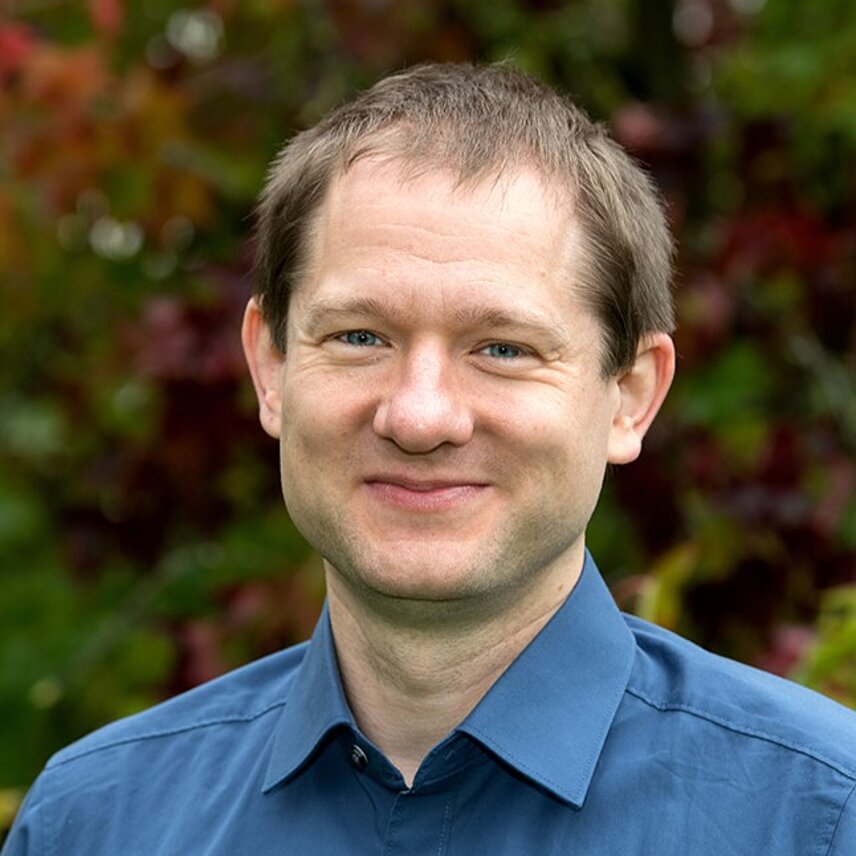15.10.2025
Junior Professor Dr. Nils Weitzel opens a new Environmetrics chapter at RC Trust and TU Dortmund University, where rigorous statistics meets climate science to turn complex data and physical understanding into actionable insights.
 Photo: Nils Weitzel
Photo: Nils Weitzel
Why Environmetrics matters now
Climate change is not just a physical phenomenon; it’s a data challenge. Weather stations, satellites, tree rings, fossil pollen, ice cores, and simulations all record variations in the state of the Earth system - but on different scales, with gaps and uncertainties. Environmetrics is the statistical toolkit that brings these pieces together, revealing patterns and quantifying risks that inform policy, infrastructure planning, and risk communication. By developing methods that make climate evidence more reliable and comparable across space and time, Dr. Weitzel’s group helps ensure that decisions - from flood protection to energy system planning - rest on sound, transparent inference.
Trustworthy data science in action
RC Trust’s mission is to build confidence in intelligent, data-driven systems, especially where stakes are high. In climate applications, “trustworthy” means methods that are explainable, uncertainty-aware, and tested against independent evidence. Dr. Weitzel’s work advances this mission by designing statistical frameworks that combine data from multiple sources and rigorously quantify uncertainties, so that model outputs are reliable and understandable for decision-makers.
Reading Earth’s memory—then using it
One pillar of the Environmetrics group is climate field reconstructions: rebuilding past temperature and precipitation patterns from natural climate recorders such as pollen and plankton. These reconstructions, often powered by Bayesian hierarchical models, extract climate signals from noisy, uneven observations and knit them into coherent maps through time. The payoff is twofold: a sharper picture of how the climate has varied - abruptly and gradually - and stronger constraints for the next generation of climate projections. Put simply, knowing how the Earth responded before helps us calibrate how it may evolve in the future.
From proxies to projections—closing the loop
Another focus is integrating climate constraints from Earth’s history into forward-looking Earth system models. By comparing simulations with climate and vegetation reconstructions from major climate transitions in the past, Dr. Weitzel and collaborators identify where models are robust - and where they underestimate regional swings. These insights can inform model parameters, identify missing processes, and improve the reliability of long-term risk assessments.
How the methods work—without the math headache
- Bayesian models: Think of them as formal ways to blend prior knowledge (e.g., how pollen types relate to climate) with new data, yielding full probability distributions rather than mere “best guesses”. That means we don’t just get a map—we get a map with honest uncertainty bars.
- Spatio-temporal statistics: Climate varies across regions and time scales. Capturing the links between space and time is necessary to understand persistent regional oscillations and abrupt jumps, improving both our understanding of the Earth system and the physical models that describe it.
- Model–data comparison frameworks: Side-by-side benchmarking of simulations against independent proxy syntheses, including honest assessments of uncertainties, shows where models align with reality and where they need refinement - an essential step for trustworthy projections.
The impact—clarity for policy and the public
Transparent methods and validated climate models translate into clearer risk narratives: What ranges of warming are plausible for a region? How often do extremes cluster? Which uncertainties truly matter for adaptation timelines? By grounding answers in open, testable statistics, Environmetrics supports credible climate services, strengthens public communication, and equips institutions to act with confidence - exactly the ethos of RC Trust.
The person behind the program—path and positions
Dr. Nils Weitzel is Junior Professor for Environmetrics at TU Dortmund University and leads the Environmetrics group at RC Trust. He studied mathematics and geography, completed a PhD in meteorology at the University of Bonn on Bayesian climate field reconstructions, and held postdoctoral roles at Heidelberg University and the University of Tübingen (2019–2024). Until September 2025, he served as a Marie Skłodowska-Curie Research Fellow at the University of Bristol, leading a project to calibrate vegetation responses to CO₂ in Earth system models. He contributes internationally as a steering group member of the PAGES working group “Climate Variability Across Scales (CVAS).”
Category
- News
- Staff
- Environmetrics